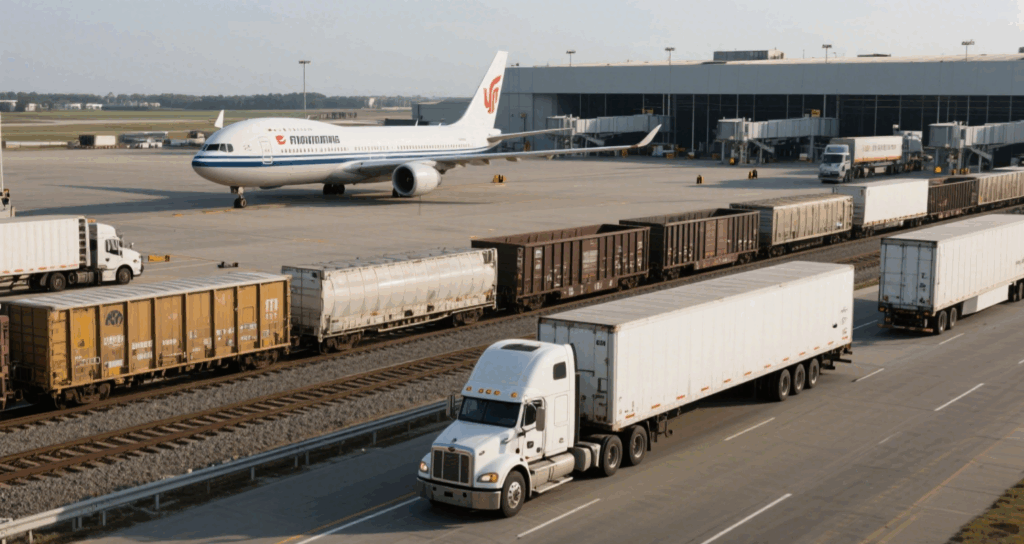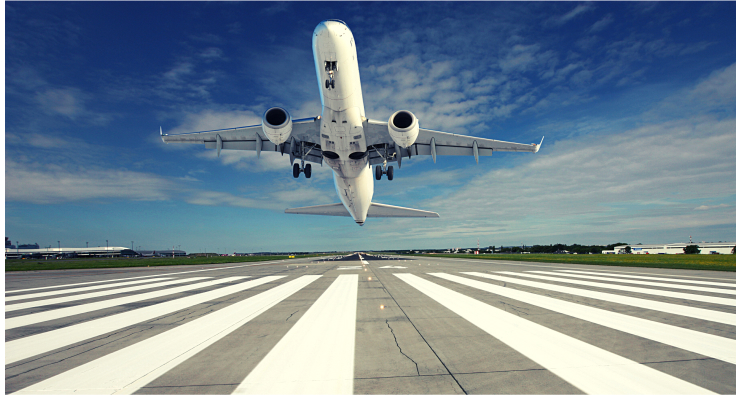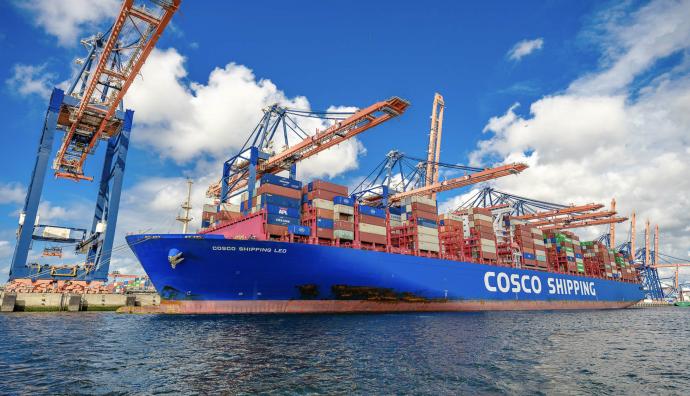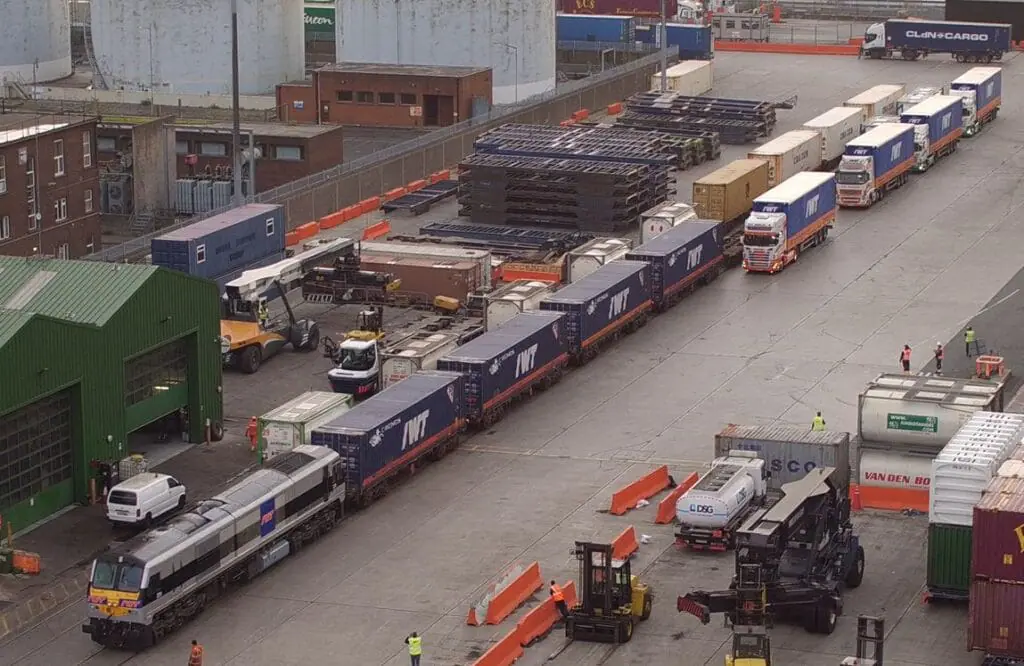Shipping from China to Thailand has become a major concern for businesses seeking efficient and affordable logistics solutions. With increasing trade between these two countries, it’s essential to understand the different shipping methods, their costs, and how to optimize delivery times. In this guide, we will cover everything you need to know about China to Thailand shipping, including cost comparisons, customs documentation, and practical tips to streamline the process.
What Are the Main Shipping Methods from China to Thailand?
When shipping from China to Thailand, there are a variety of options to consider, each with its own pros and cons. The main methods include:
1.1 Air Freight
Air freight is the fastest method for shipping goods from China to Thailand. It’s ideal for smaller, high-value, or time-sensitive items. However, it is also the most expensive shipping method.
1.2 Sea Freight
Sea freight, particularly via container shipping, is the most economical choice for large shipments. While slower, it’s the preferred method for bulk goods and large volumes.
1.3 Rail Freight
Rail freight is an emerging alternative for shipping between China and Thailand, offering an affordable and relatively fast option compared to sea freight, especially for certain routes.
How Much Does China to Thailand Shipping Cost?
The cost of shipping from China to Thailand depends on several factors, including the shipping method, the size and weight of your cargo, and the route you choose. Below is a comparison of typical costs for different shipping methods:
| Shipping Method | Cost (USD) | Transit Time | Best For | Cons |
|---|---|---|---|---|
| Air Freight | $5 – $12 per kg | 3–5 days | Small, high-value, or time-sensitive goods | Expensive, limited capacity |
| Sea Freight | $1.5 – $5 per kg | 7–20 days | Large shipments, bulk goods | Slow, potential delays |
| Rail Freight | $2 – $6 per kg | 5–10 days | Mid-size shipments | Limited availability |
Example Cost Scenarios:
- Air Freight: Shipping a 50kg parcel from Guangzhou to Bangkok via air freight might cost between $250 and $600 depending on the carrier.
- Sea Freight: Shipping the same 50kg parcel via sea freight could cost between $80 and $250, depending on the container size (LCL vs FCL) and shipping route.
How Long Does Shipping from China to Thailand Take?
Transit times can vary significantly based on the shipping method and route selected. Below is an overview of typical transit times for the three major shipping methods:
| Shipping Method | Estimated Transit Time | Best For |
|---|---|---|
| Air Freight | 3 – 5 days | Time-sensitive, small shipments |
| Sea Freight | 7 – 20 days | Large, bulk shipments |
| Rail Freight | 5 – 10 days | Bulk shipments to/from China & Southeast Asia |
Example:
- Air Freight from Shenzhen to Bangkok: 3-4 days
- Sea Freight from Shanghai to Laem Chabang (Thailand’s main seaport): 14-18 days
- Rail Freight from Chengdu to Bangkok: 7-10 days
What Are the Key Factors Affecting China to Thailand Shipping?
Several factors impact the cost and efficiency of shipping goods from China to Thailand:
4.1 Shipping Volume and Weight
Larger or heavier shipments will generally be more expensive, especially with air freight, which charges by weight and volume. Sea freight often offers more flexibility for larger shipments.
4.2 Delivery Speed
Express air freight services will be significantly faster but will also incur higher costs. Sea freight, while much slower, is much more affordable for bulk goods.
4.3 Customs and Documentation
Both China and Thailand require specific documentation for international shipments. These can include the commercial invoice, bill of lading, packing list, and customs declaration forms.
4.4 Seasonality
Certain times of year, such as Chinese New Year or holidays in Thailand, can affect shipping costs due to higher demand. Be sure to plan for these peaks to avoid increased rates.
What Are the Customs Requirements for Shipping from China to Thailand?
When shipping from China to Thailand, you’ll need to ensure that your goods comply with Thailand’s customs regulations. Common documents and requirements include:
- Commercial Invoice: This document details the goods and their value.
- Bill of Lading: A receipt from the shipping carrier that confirms the shipment details.
- Customs Declaration: A declaration of the goods being shipped, required for customs clearance.
- Certificate of Origin: In some cases, this is necessary to prove the goods’ origin, especially for tariff classification.
Customs Duty and VAT: Thailand imposes customs duties and Value Added Tax (VAT), which are calculated based on the CIF (Cost, Insurance, and Freight) value of the goods. The VAT rate is 7%, and import duties range from 0% to 30% depending on the product type.
How Can You Optimize China to Thailand Shipping for Cost Efficiency?
There are several ways to optimize your shipping process and reduce costs:
- Consolidate Shipments: Combining smaller shipments into one larger shipment can lower the cost per unit.
- Use Freight Forwarders: Freight forwarders can help you find the most cost-effective routes, consolidate shipments, and assist with customs clearance.
- Choose Sea Freight for Bulk Shipments: If time is not critical, sea freight is the most affordable method for large shipments.
- Book Early: Shipping rates can increase closer to peak seasons, so booking well in advance can save you money.
Air Freight vs Sea Freight vs Rail Freight: Which is Best for Shipping from China to Thailand?
| Shipping Method | Cost | Transit Time | Best For | Disadvantages |
|---|---|---|---|---|
| Air Freight | Expensive | Fast (3–5 days) | Small, high-value, time-sensitive goods | Higher cost, limited capacity |
| Sea Freight | Affordable | Slow (7–20 days) | Bulk shipments, non-perishable goods | Slow transit, port congestion |
| Rail Freight | Moderate | Moderate (5–10 days) | Medium-sized shipments, cost-efficient | Limited routes, infrastructure limitations |
Sea Freight remains the most economical for larger shipments, while air freight is ideal for time-sensitive goods. Rail freight, though less commonly used, offers an efficient middle ground for certain regions.

Real Case Studies of Shipping from China to Thailand
Case 1: Shenzhen → Bangkok (Air Freight)
- Cargo: Electronics (100 kg)
- Mode: Air Freight
- Cost: $800
- Transit Time: 4 days
- Outcome: The shipment was delivered in time for a product launch event, though the client paid a premium for speed.
Case 2: Shanghai → Laem Chabang (Sea Freight)
- Cargo: Clothing (500 kg)
- Mode: Sea Freight (FCL)
- Cost: $1,500
- Transit Time: 16 days
- Outcome: The client saved on costs by choosing sea freight for bulk shipment, though the delivery was slower.
Should You Use a Freight Forwarder for Shipping from China to Thailand?
A freight forwarder can significantly streamline the shipping process. Here are some benefits:
- Cost Optimization: Freight forwarders can help negotiate better rates and optimize shipping methods.
- Expertise in Customs: Freight forwarders have in-depth knowledge of customs regulations, ensuring smooth clearance and timely delivery.
- Consolidation Services: They can consolidate multiple shipments, reducing overall costs.
If you ship regularly or in large volumes, partnering with a freight forwarder is a smart move to save time and money.
Conclusion
To summarize, shipping from China to Thailand requires understanding the various methods available, from air cargo for time-sensitive shipments to sea freight for bulk shipments. By optimizing your shipping choices, preparing the correct documentation, and leveraging the expertise of freight forwarders, you can save on costs and ensure timely delivery.
- Consult TJ China Freight Forwarding for the lowest quote. They will provide you with reliable, cost-effective service.
FAQs
Q1.What is the cheapest shipping method from China to Thailand?
Sea freight is the most affordable method, particularly for bulk shipments, though it takes longer.
Q2.How long does shipping from China to Thailand take?
Air freight takes 3-5 days, sea freight can take 7-20 days, and rail freight takes 5-10 days.
Q3.How much does air freight cost from China to Thailand?
Air freight costs range from $5 to $12 per kg, depending on the service level and cargo type.
Q4.What documents are needed for shipping from China to Thailand?
Required documents include a commercial invoice, bill of lading, packing list, and certificate of origin.
Q5.Can I track my shipment from China to Thailand?
Yes, most carriers provide tracking numbers, allowing you to monitor your shipment in real-time.




